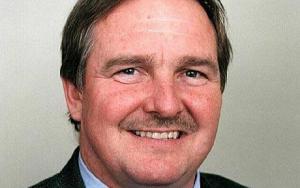In a paper published Wednesday in the journal Nature Reviews Neuroscience, a group of leading scientists argue that global drug prohibition has not only compounded the harms of drug use, but also produced the worst censorship of research in centuries. They likened the banning of psychoactive drugs and the subsequent hampering of research on them to the Catholic Church banning the works of Copernicus and Galileo.

The possession of marijuana, MDMA (ecstasy) and psychedelics are stringently regulated under national laws and international conventions dating back to the 1960s, but those laws are not based on science, and the global prohibition regime is rigid and resistant to change, they argued.
"The decision to outlaw these drugs was based on their perceived dangers, but in many cases the harms have been overstated and are actually less than many legal drugs such as alcohol," said Nutt, professor of neuropsychopharmacology at Imperial College London. "The laws have never been updated despite scientific advances and growing evidence that many of these drugs are relatively safe. And there appears to be no way for the international community to make such changes."
In the paper, Nutt and his colleagues argue that the scheduling of psychoactive drugs impedes research into their methods of action and therapeutic potentials and sometimes makes it impossible.
"This hindering of research and therapy is motivated by politics, not science," said Nutt. "It's one of the most scandalous examples of scientific censorship in modern times. The ban on embryonic stem cell research by the Bush administration is the only possible contender, but that only affected the USA, not the whole world."
Research in psychoactive drugs should be free of severe restrictions, the scientists argued.
"If we adopted a more rational approach to drug regulation, it would empower researchers to make advances in the study of consciousness and brain mechanisms of psychosis, and could lead to major treatment innovations in areas such as depression and PTSD," Nutt said.
Nutt headed Britain's Advisory Committee on the Misuse of Drugs until 2009, when he was forced out by the Labor government of Prime Minister Gordon Brown. Nutt was sacked after publicly criticizing the government for ignoring the committee's scientific advice on marijuana on ecstasy. He then became chair of the Independent Scientific Committee on Drugs, which aims to review and investigate the harms and benefits of drugs free from political interference.
This work by StoptheDrugWar.org is licensed under Creative Commons Attribution-ShareAlike 4.0 International
Comments
Drug Enforcement is Anti-Science and Anti-Human
Among the many objectives of prohibition is to keep illicit drugs out of the national pharmacopeia where they would otherwise compete with synthetic pharmaceutical products that might be less effective, or have more side effects. In that sense there is a bit of method to the madness of prohibition, but it is madness, nonetheless.
The cult of prohibition isn’t the only anti-science mechanism at work interfering with honest medical research. A pill that ends addiction will also end the addiction treatment industry, so we can expect resistance to the development and use of such a pill. A drug that provides treatment for emotional problems equivalent to ten sessions with a psychologist will be resisted or coopted by the therapeutic state. A natural herb like marijuana that can be grown at home as a sleeping aid, or for controlling diabetes, or body fat, will kill the market for dozens of similar products sold in drug stores.
Then there is the crazy factor. For example, in the early 19th century a group of clerics and doctors in Boston and England opposed smallpox vaccinations because they believed any kind of medicine or vaccine thwarted the will of the gods who allegedly impose disease on humanity as a punishment for sin. Opposition to stem cell research, whose discoveries will someday save and repair millions of lives, falls into a similar category. Disease will eventually eliminate the crazy factor, but this type of natural selection takes a long time.
Professor David Nutt of Imperial College London is correct when he asserts that prohibition hurts science. It also hurts anyone who could benefit healthwise from the science. Thwarting science designed to help people live, or live well, constitutes a crime against humanity, and both governments of the UK and USA are at the forefront of said crimes.
Human Rights Violations
In reply to Human Rights Violations by John Johnson (not verified)
Human Rights Watch
If that’s the case, NORML needs to get their act together. See what the experts say at Human Rights Watch, which just declared the methods used by the U.S. government to stop drug use as undermining basic human rights:
http://www.hrw.org/news/2013/06/04/americas-decriminalize-personal-use-drugs
In reply to Human Rights Violations by John Johnson (not verified)
Where or when has NORML said
Where or when has NORML said it's not a human rights issue?
Add new comment